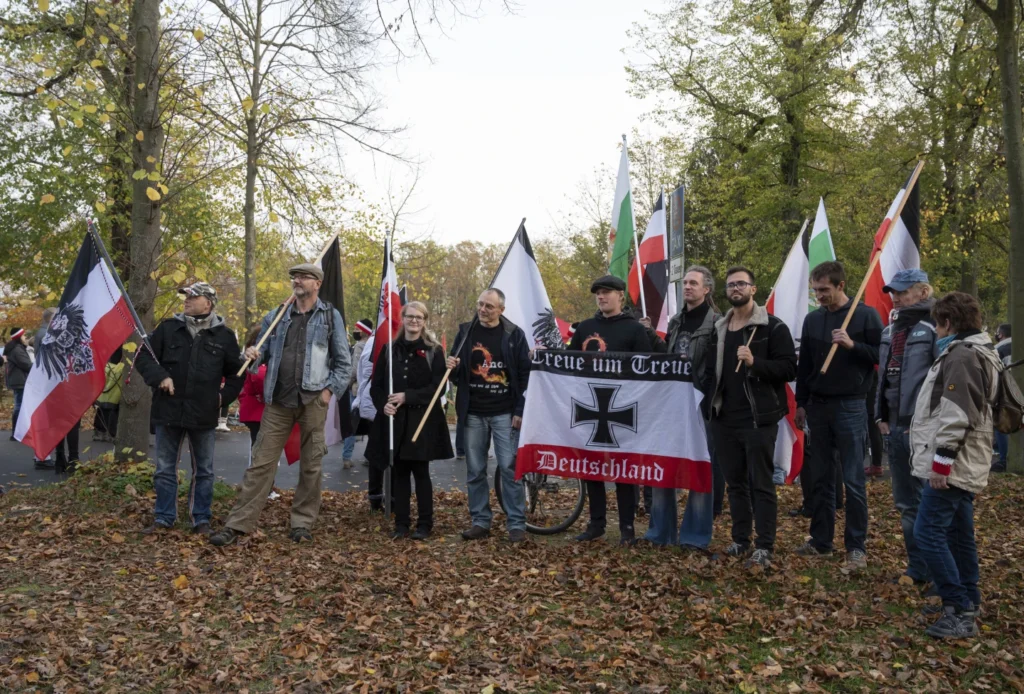BERLIN — German authorities have outlawed the country’s largest and most notorious “Reich citizen” group, known as the “Kingdom of Germany,” and arrested four of its top leaders in a sweeping operation aimed at dismantling a shadow state accused of undermining the nation’s democratic foundations.

In coordinated raids that began early Tuesday, more than 800 police officers carried out searches across multiple states, targeting properties linked to the outlawed group and residences of senior figures, including the group’s founder, Peter Fitzek. The crackdown marks one of the most significant moves yet by the German government against the increasingly militant Reichsbürger movement.
Interior Minister Alexander Dobrindt confirmed the ban during a press briefing in Berlin, warning that the group had evolved into a full-scale “counter-state” operating outside the bounds of Germany’s legal and constitutional framework.
“These individuals created a shadow government within our country and constructed criminal economic networks to fund their delusional ambitions,” Dobrindt said. “They fortified their claims to power through antisemitic conspiracy theories. This is not just intolerable — it is a direct threat to our democratic order.”
A Parallel State Threatening Democratic Integrity
The Reichsbürger, or “Reich citizens,” movement rejects the legitimacy of the Federal Republic of Germany. Adherents claim the German Reich — as it existed prior to World War II — remains the lawful government and refuse to acknowledge the current democratic institutions, including parliament, courts, and taxation authorities.
Among the dozens of splinter groups within the Reichsbürger scene, the “Kingdom of Germany” has stood out for its scale and organizational sophistication. Proclaimed in 2012 by Peter Fitzek in the eastern town of Wittenberg, the self-styled micro-nation claims to have created its own governance system, banking infrastructure, and laws. While Fitzek has claimed that his “kingdom” boasts 6,000 followers, Germany’s Interior Ministry places its active membership closer to 1,000.
“This is not about harmless eccentrics clinging to imperial fantasies,” Dobrindt emphasized. “This is about criminal structures and dangerous networks that seek to delegitimize our constitutional state and replace it with authoritarian rule.”
Assets Seized, Digital Platforms Blocked
As part of the ban, German authorities have frozen the group’s assets and moved to block its websites and online communications to prevent further dissemination of extremist material and financing of its operations. Officials said the financial infrastructure of the group — which included unregulated currency and investment schemes — would be dismantled.
This is not the first time Germany has taken decisive action against the Reichsbürger movement. In 2023, authorities conducted a series of raids targeting about 20 individuals linked to the far-right network. Some members have been tied to ideologies similar to the QAnon conspiracy movement in the United States, blending anti-state sentiment with antisemitic and anti-globalist theories.
The Reichsbürger scene gained international attention in late 2022 when a suspected coup plot, allegedly organized by far-right extremists aiming to overthrow the German government, was uncovered. Several individuals involved in that plot went on trial last year in a case that stunned the German public and highlighted the growing threat posed by radical anti-government groups.
Fitzek Among Those Detained
Peter Fitzek, who styles himself as the monarch of the “Kingdom of Germany,” was one of the four individuals arrested during Tuesday’s operation. Fitzek has long been a figurehead within the Reichsbürger movement and previously served jail time for operating an unlicensed banking system.
His arrest marks a significant blow to the movement’s infrastructure, as authorities seek to sever leadership ties and eliminate the group’s operational capacity. While smaller factions of the Reichsbürger movement remain active, the government’s action against its most prominent wing represents a broader effort to curtail domestic extremism and reinforce the primacy of Germany’s constitutional order.
A Growing Security Priority
Interior Minister Dobrindt reiterated that the protection of Germany’s free democratic order is a top national security priority.
“We are resolute in our response to any effort that seeks to replace democracy with despotism,” he said. “Extremist ideologies, especially those cloaked in pseudohistorical narratives, have no place in our society. The state will continue to act decisively to ensure that.”
As Germany continues to grapple with the challenges of rising far-right extremism, this latest crackdown reflects a broader strategy of preemptive disruption against groups that pose existential threats to the democratic state. Officials say the investigation into the Kingdom of Germany’s financial and ideological network is ongoing, with further arrests and asset seizures possible in the coming weeks.
AP



